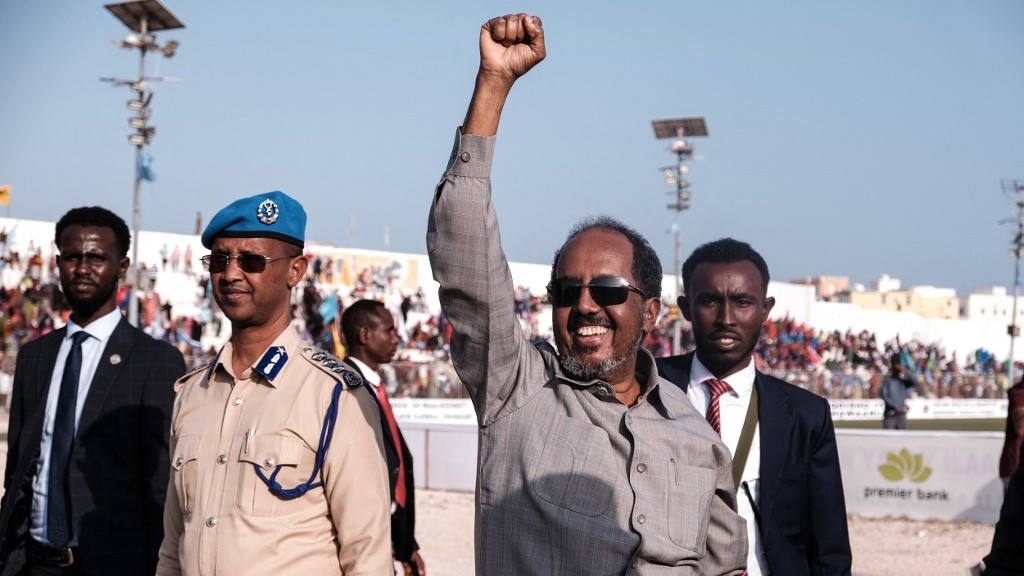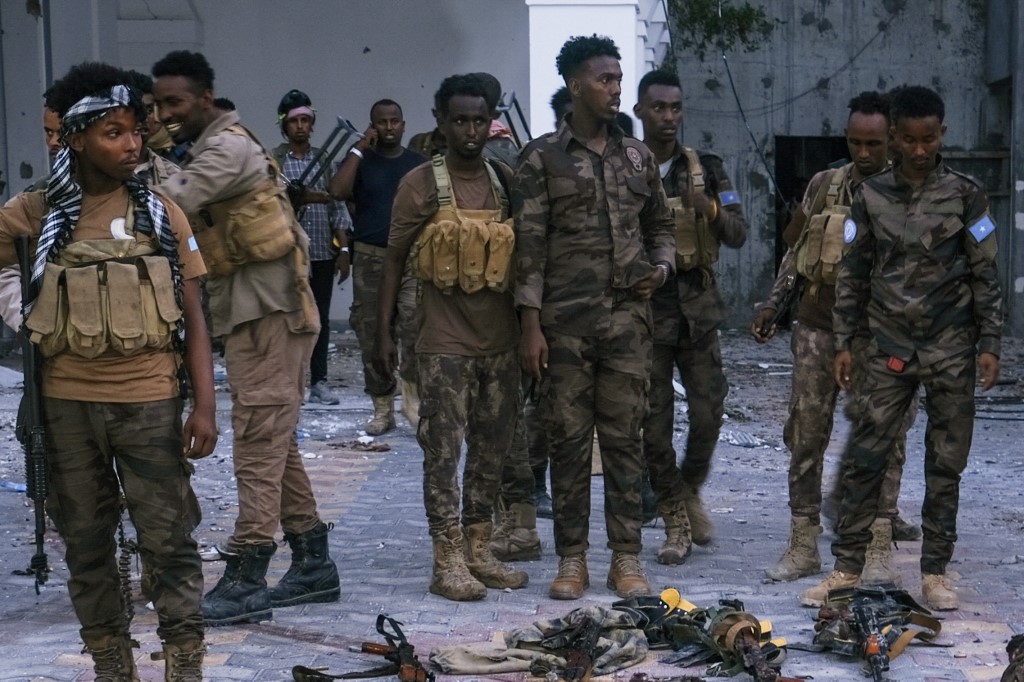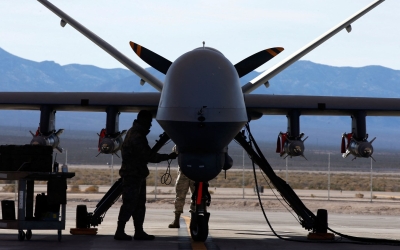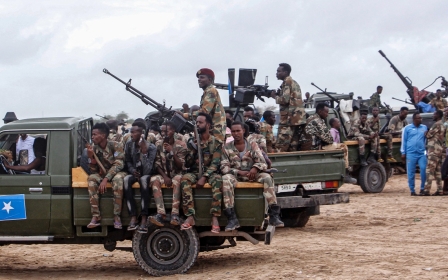Somalia: Campaign against al-Shabab must continue after the guns fall silent

An ongoing counterinsurgency offensive in Somalia in recent months has put the al-Qaeda-affiliated al-Shabab terror group on the run. The challenge now is to ensure that these gains are consolidated, and the momentum is maintained and leveraged for sustainable post-conflict stabilisation.
After a deadly hotel siege that killed more than 20 people in Mogadishu, Somali President Hassan Sheikh Mohamud last August declared an "all-out war" on al-Shabab, reiterating his government's commitment to redouble and intensify efforts in the fight against the militant group. Al-Shabab has carried out several daring attacks since Mohamud's election last May, in addition to a cross-border incursion into Ethiopia and a raid on a military base on the Ethiopian-Somali border, both in July.
In line with current counterinsurgency thinking, Mohamud's "all-out war" on al-Shabab is much more than a purely military campaign. It has three main components: ideological, financial and military.
On the ideological level, Mohamud's government has embarked on an effort to combat violent extremism. To that end, it has recruited the support of religious scholars to counter al-Shabab's ideology, while also adopting the "Khawarij" label to describe the armed group, in a bid to strip it of religious legitimacy.
On the financial side, Mohamud's campaign has included measures and mechanisms aimed at countering al-Shabab's financing. The country's Financial Reporting Centre is entrusted with regulating the flow of cash from all financial institutions, while the government is also introducing a Personal Identification Number (PIN) system for all Somalis to identify and track all financial transfers.
New MEE newsletter: Jerusalem Dispatch
Sign up to get the latest insights and analysis on Israel-Palestine, alongside Turkey Unpacked and other MEE newsletters
Additionally, work is underway to tighten existing anti-terrorism financing and money laundering regulations, such as the 2016 Anti-Money Laundering and Countering the Financing of Terrorism Act, to shut down revenue flows to al-Shabab. Somali officials have also said that the government has closed around 250 bank accounts and suspended more than 70 mobile telephone numbers linked to the armed group.
Major setback
Militarily, since the president's announcement, Somali security forces, aided by US Africa Command air strikes and local clan militias, have been engaged in high-intensity operations that have succeeded in dislodging al-Shabab from large swathes of territory in central Somalia, namely in the Hirshabelle and Galmudug states. Turkish military advisers have reportedly been assisting in operating armed drones supplied by Ankara.
On 16 January, the Somali National Army, supported by allied local clan militias, captured several areas in Galmudug state, including the strategic coastal port town of Harardhere, northeast of the federal capital Mogadishu. This was a major setback for al-Shabab, as the town was a critical node in its supply chain.
But the operations have created logistical challenges for Somali forces amid overstretched supply lines and shortages of ground troops necessary to hold liberated territory. This has slowed planning for the expansion of offensive counterinsurgency operations, mainly towards the South-West and Jubaland states. In addition, al-Shabab has responded with a series of failed counterattacks and high-profile attacks against government and civilian targets in urban centres, including Mogadishu.
The group has been pushed out of large areas before, only to regroup and recapture those areas, taking advantage of haphazard post-conflict stabilisation and reconstruction efforts. One failure of past efforts in Somalia stemmed from a lack of inclusive political and civic dialogue to determine priorities. Tensions between the federal government and federal member states have often undermined post-conflict reconstruction and peace-building efforts in the country.
Developing a roadmap
Yet, as the current counterinsurgency operations continue to make gains, there are signs that the federal government is looking towards post-conflict stabilisation in areas recently captured from al-Shabab. In November, the government announced that it would reopen schools in seized territories, with school supplies already sent to Hirshabelle state.
So far, such stabilisation moves remain ad hoc, and do not seem to be part of a well-coordinated roadmap that could inform the government's policymaking. In the past, the local populations of areas seized from al-Shabab have had little hope of benefitting from a weak government that could not provide requisite security and development. The armed group has often capitalised on the state's failure to stage comebacks.
And in a country deeply divided along clan lines, the government's reliance on a hodgepodge of clan militias for its counterinsurgency offensive is fraught with risks. It is unclear how long the anti-al-Shabab sentiment will provide the glue that keeps this alliance together. Experience shows that, when government forces have captured places from al-Shabab in the past, local clan disputes - kept under the lid of jihadist repression - have tended to come to the fore. The clan conflict between the Ayr and Duduble clans in Dhusamareb is a case in point.
This underscores the importance of inclusive dialogue between relevant federal government, federal member state and civilian stakeholders in planning and setting priorities for development and reconstruction, which are important components of stabilisation in recently captured territories after the guns have fallen silent.
Dialogue should also aim to tackle issues such as the sharing of power and resources at the national, regional and local levels. State failures and a lack of meaningful progress have long created a breeding ground for civil strife, terrorism and insurgency in Somalia. It is high time now to make every effort to ensure coordinated and effective post-combat stabilisation action, in order to prevent a relapse of violence or the resurgence of al-Shabab.
The views expressed in this article belong to the author and do not necessarily reflect the editorial policy of Middle East Eye.
Middle East Eye delivers independent and unrivalled coverage and analysis of the Middle East, North Africa and beyond. To learn more about republishing this content and the associated fees, please fill out this form. More about MEE can be found here.







